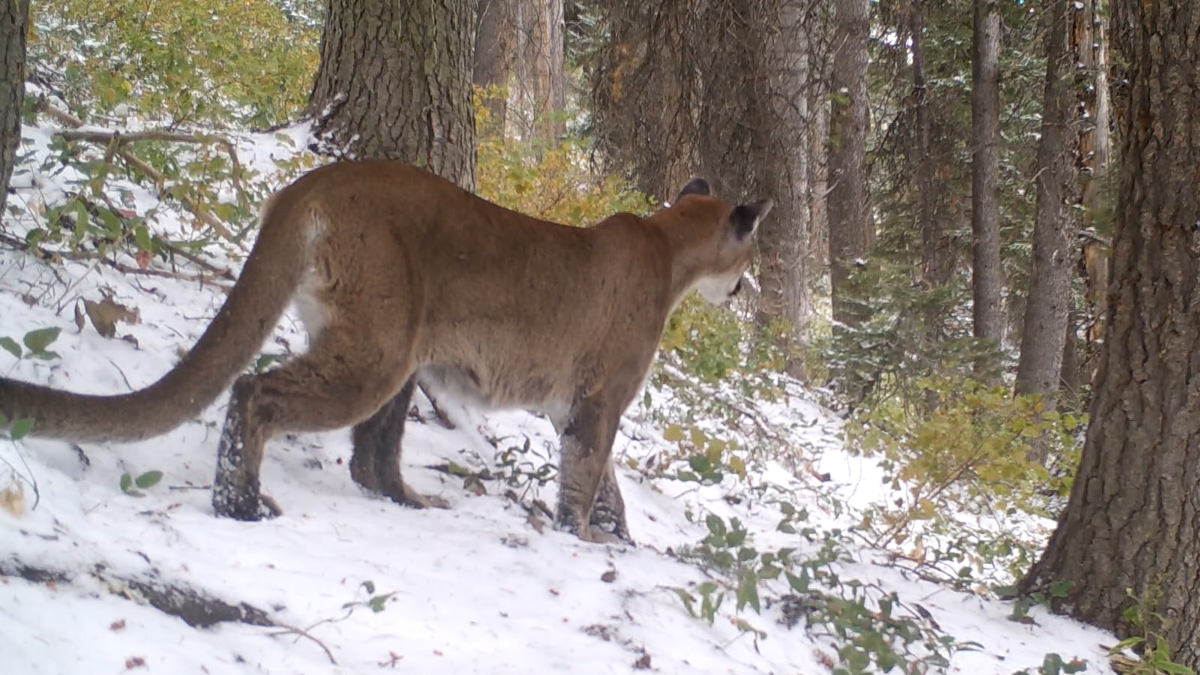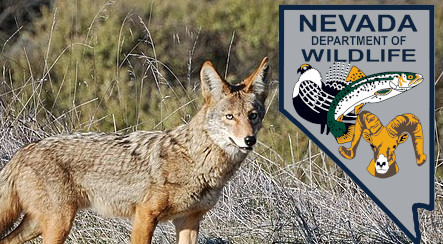For immediate release
Date: January 5, 2022
Contact:
Logan Christian, Conservation Advocate, Mountain Lion Foundation
Lchristian@mountainlion.org
916-442-2666 ext. 108
Utah Wildlife Board votes 4-3 to ban trail cameras for most hunting purposes, shortens the seasonal timeframe of the ban to give more opportunity to mountain lion hunters, and removes some protections for collared lions.
Utah – On Tuesday, January 4, the Utah Wildlife Board voted 4-3 to approve a proposed rule change that will ban the use of trail cameras for aiding in the take of wildlife (i.e. for hunting purposes). The new rule will go into effect from July 31 to December 31 of each year, covering most of Utah’s big game hunting seasons. The original proposed timeframe of the ban was July 31 to January 31, but an amendment shortened the timeframe to December 31 to give more opportunity to mountain lion hunters who use trail cameras. This new rule will apply to both internal storage cameras and transmitting trail cameras that display images to users in real time. The rule change also prohibits the use of night-vision devices during any big game hunt, including 48 hours before and after a big game hunt, and prohibits the sale or distribution of images from trail cameras used for aiding the take of wildlife.
Over the past year, the Utah Division of Wildlife Resources (DWR) administered several surveys to inform their proposed rule change. These surveys found that the majority of Utah hunters do not support the use of trail cameras for hunting purposes, mostly due to concerns about fair chase. Utah’s consideration of the trail camera issue comes as many other states limit the use of trail cameras for hunting purposes, including Nevada in 2018 and Arizona in 2021.
Several Board and Regional Advisory Council (RAC) members voiced concerns about enforcement of the new trail camera ban. The RACs only approved the ban by a 3-2 margin, with the two opposing RACs requesting that Utah adopt something similar to Nevada’s ban that applies to all trail cameras instead of those used for hunting, which makes enforcement easier. Board Member Bryce Thurgood motioned to amend the rule change to apply to all trail cameras, but the DWR’s lawyer clarified that the agency does not have authority to limit trail camera use outside of hunting without authorization from the legislature. Utah State Representative Mike Schultz was present and agreed to take up the issue of a more all-encompassing seasonal trail camera ban in the legislature at a future time.
Board Member Wade Heaton also called for a future action item to explore limiting other emerging technologies that reduce fair chase hunting practices, such as scopes for muzzleloaders. The Division’s Big Game Coordinator, Covy Jones, supported this idea, saying the Division will help “look at technologies that impact harvest success, form a committee to address these issues, and then get some public sentiment and decide which ones to address.”
As originally proposed, the trail camera ban would have extended through January 31. Board Member Bryce Thurgood amended the rule during the meeting so that the trail camera ban would only extend through December 31 after some board members expressed a desire to give more opportunity to cougar hunters who use trail cameras. “Give the cougar hunters the month of January,” said Randy Dearth, Vice Chair of the Wildlife Board.
Mountain Lion Foundation supported the ban on trail cameras for hunting purposes, submitting comments in favor of the rule change and encouraging their statewide members to do so as well. However, the Foundation was not in support of the last minute change to give more opportunity to lion hunters who use trail cameras.
“This last minute change to promote mountain lion hunting is disappointing, but not surprising given the DWR’s recent move to allow unlimited lion hunting in over half of Utah’s hunting units,” said Logan Christian, Region 2 Conservation Advocate for Mountain Lion Foundation. “The DWR has the backing of the State Legislature to hunt lions at an unprecedented rate in the name of protecting elk and deer, despite the evidence that declining habitat quality and climate change play a far greater role in the decline of these species compared to predation. Mountain lions are just an easy scape-goat that allows the Division to sell more hunting permits.”
In line with this sentiment against cougars, later in the meeting, the Board voted to remove some limitations on killing cougars with radio collars. In 2021, the Board prohibited killing cougars with collars to help ensure quality data collection for active cougar studies. This rule included a sunset period after 3 years when hunters could resume killing collared cougars. However, on Tuesday, the Board decided to let hunters kill collared cougars as long as they are in a hunting unit that does not have an active study, despite concerns that cougars from active study areas may wander into inactive study areas.



